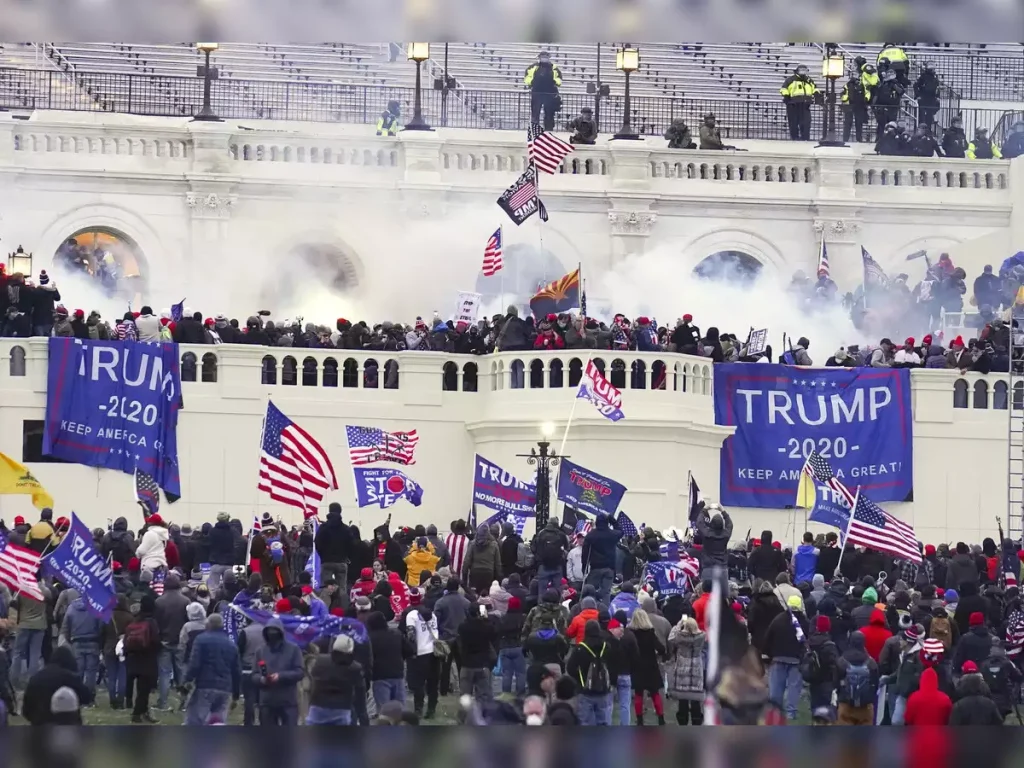SWANSEA, MA – President Donald Trump granted pardons to over 1,000 Capitol rioters on Monday, a move that has sparked a wide range of reactions. WBZ spoke with two New England men who were among those granted clemency but held contrasting perspectives on the gesture.
Massachusetts Man Grateful for Trump’s Pardon
Mike St. Pierre, a former grocery store owner from Swansea, expressed relief and gratitude after being included in Trump’s sweeping pardons of 1,500 individuals involved in the January 6, 2021, Capitol riot.
“I never doubted President Trump’s pardon,” St. Pierre said. “I kind of expected it, and I was grateful for it. Some bad things happened that day; nobody can take that away and say, ‘No, it didn’t.’ But let’s acknowledge that the people who were in jail for January 6, they did their time.”
St. Pierre had been facing up to five years in prison for his role in the riot, which included throwing the top of a flagpole at a closed door inside the Capitol. He was set to be sentenced on March 14.
“My intention that day was not to engage with police, obviously,” he explained. “I was upset with the government, so I was taking my frustration out at the government—that’s why I threw it when the door was closed.”
Reflecting on his actions, St. Pierre expressed remorse for the harm caused to law enforcement. “If I ever had to apologize to anybody for my actions, it would be to Capitol Police officers,” he said.
New Hampshire Man Rejects Trump’s Pardon
In stark contrast, Jason Riddle of Keene, NH, rejected the pardon offered to him. Riddle, who gained notoriety for chugging a bottle of wine he found inside the Capitol and stealing a book on Senate procedure, said he does not want to erase his criminal record.
“I was struggling with alcohol, and the 90 days in prison with alcohol treatment saved my life,” Riddle explained. “The things I did on January 6, I did them, and a pardon is to not accept that. That’s why I’m not going to accept the pardon. I accept reality. I’m keeping my criminal record—thank you, but no thank you.”
Riddle, who has apologized for his actions, emphasized the lessons he has learned since that day. “Just thinking of the Capitol Police and their families; this has to be an awful experience,” he said.
Criticism of Trump’s Pardons
Trump’s decision to pardon Capitol rioters has drawn significant criticism from lawmakers and citizens alike. Representative Jim McGovern (D-Massachusetts) voiced his disapproval on X (formerly Twitter):
“Trash everywhere. Doors and windows smashed and breached. Cops viciously attacked. Feces smeared on the walls of our national symbol. I was there on January 6. One of the last people on the House Floor. It was a disgrace. Pardoning the traitors and terrorists who did it is an endorsement of political violence and rioting. This is not what America voted for.”
Polarized Reactions
The pardons have amplified divisions over the legacy of January 6, with some viewing the gesture as an act of compassion and others condemning it as undermining accountability for one of the most significant attacks on American democracy.
While individuals like St. Pierre see the pardon as a chance to move forward, others, like Riddle, choose to accept the consequences of their actions as a means of personal growth and accountability.
The starkly different reactions from these two men underscore the complexities of reckoning with the events of January 6 and the broader societal and political implications of Trump’s pardons.
Disclaimer – Our editorial team has thoroughly fact-checked this article to ensure its accuracy and eliminate any potential misinformation. We are dedicated to upholding the highest standards of integrity in our content.





More Stories
Capitol Rioters from New England Divided Over Trump’s Pardons
Capitol Rioters from New England Divided Over Trump’s Pardons
Capitol Rioters from New England Divided Over Trump’s Pardons